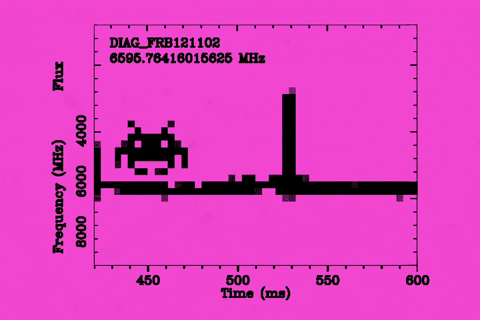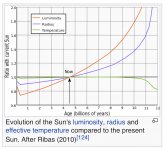Take a look at this paper - I've posted a link to it before, but here's the pdf.In essence, the Drake equation is quite optimistic. For single celled organisms to progress to multi-cellular ones takes an enormous amount of time, and the conditions have to be just right. If they are not, the development path leads elsewhere.
For this reason, the author (and a growing number of astrobiologists) have come to believe that the kind of life we have on planet Earth is exceptionally rare. The figures I've seen are 'perhaps' one advanced lifeform like ours per galaxy. There's a lot of galaxies out there, but they are far away. However, the Milky Way is also quite unique - very old and very rich in elements.
Now, I'd love to see an alien, or for us to make contact, but I don't think it will ever happen. So we had better look after what we have - its pretty rare and precious 😉
"It is unknown how abundant extraterrestrial life is, or whether such life
might be complex or intelligent. On Earth, the emergence of complex
intelligent life required a preceding series of evolutionary transitions such
as abiogenesis, eukaryogenesis, and the evolution of sexual reproduction,
multicellularity, and intelligence itself. Some of these transitions could
have been extraordinarily improbable, even in conducive environments.
The emergence of intelligent life late in Earth's lifetime is thought to be
evidence for a handful of rare evolutionary transitions, but the timing of
other evolutionary transitions in the fossil record is yet to be analyzed in a
similar framework. Using a simplified Bayesian model that combines
uninformative priors and the timing of evolutionary transitions, we
demonstrate that expected evolutionary transition times likely exceed the
lifetime of Earth, perhaps by many orders of magnitude. Our results
corroborate the original argument suggested by Brandon Carter that
intelligent life in the Universe is exceptionally rare, assuming that
intelligent life elsewhere requires analogous evolutionary transitions.
Arriving at the opposite conclusion would require exceptionally
conservative priors, evidence for much earlier transitions, multiple
instances of transitions, or an alternative model that can explain why
evolutionary transitions took hundreds of millions of years without
appealing to rare chance events. Although the model is simple, it provides
an initial basis for evaluating how varying biological assumptions and fossil
record data impact the probability of evolving intelligent life, and also
provides a number of testable predictions, such as that some biological
paradoxes will remain unresolved and that planets orbiting M dwarf stars
are uninhabitable."
Attachments
Last edited:
Panspermia? What If Life Started on Mars? | Panspermia Theory Origins of Life
Somehow, that word reminds me of those Thursday nights between '68 & '76 when I looked forward to watching 'Top of the Pops' on the telly! 😉

Somehow, that word reminds me of those Thursday nights between '68 & '76 when I looked forward to watching 'Top of the Pops' on the telly! 😉

Pretty pretentious of us to think our own advancement is sufficient to even imagine the notion, to think we have a handle on science and the precursors of knowledge required to entertain such things when all we really have is the inventions of our own minds. I wonder if plain humility was ever factored into the equations with no data we've come up with. There still isn't unequivocal proof evolution separate from natural adaptation is even a real thing. What have we actually come up with other than a means to destroy ourselves? We could have done that thousands of years ago with rocks and spears.
I've had a quick look at the conclusions in the pdf - here's an extract:Take a look at this paper - I've posted a link to it before, but here's the pdf.
Didn't we agree earlier that the Sun is going to get less luminous and not more luminous?"It took approximately 4.5 billion years for a series of evolutionary
transitions resulting in intelligent life to unfold on Earth. In another billion
years, the increasing luminosity of the Sun will make Earth uninhabitable
for complex life."
Makes me doubt the author's credentials! 😀
But not so efficiently!We could have done that thousands of years ago with rocks and spears.

That's one helluva Martian ice rink!I didn't know this but there are huge craters on Mars near the poles chock full of water ice

Satellite Captures Image of Martian Ice Rink in Korolev Crater
Another kook in our midst? 🙄I've had a quick look at the conclusions in the pdf - here's an extract:
Didn't we agree earlier that the Sun is going to get less luminous and not more luminous?
Makes me doubt the author's credentials! 😀
Very funny. 😀

If we took these Space Invaders seriously, we would observe "Radio Silence". 😱
The Sun gets about 10% Brighter every Billion Years. Back in the day Venus was probably quite comfortable. In the future, Mars will warm up. Our planet gets overly warm in about a Billion Years. This was explained by Prof. Brian Cox in his interesting BBC series, "The Planets."
Solar luminosity - Wikipedia
If we took these Space Invaders seriously, we would observe "Radio Silence". 😱
The Sun gets about 10% Brighter every Billion Years. Back in the day Venus was probably quite comfortable. In the future, Mars will warm up. Our planet gets overly warm in about a Billion Years. This was explained by Prof. Brian Cox in his interesting BBC series, "The Planets."
Solar luminosity - Wikipedia
According to Prof. Cox, "3.5 billion years from now the Sun will be 1.4 times its current luminosity, and that’s enough to evaporate the oceans".This was explained by Prof. Brian Cox in his interesting BBC series, "The Planets."
But what does he know! 😀
Brian Cox: Death of the Sun and stars | Physics - Wonders of the Universe - YouTube
I've had a quick look at the conclusions in the pdf - here's an extract:
Didn't we agree earlier that the Sun is going to get less luminous and not more luminous?
Makes me doubt the author's credentials! 😀
Really?
The sun is going to get more luminous from what I’ve read. Insolation increases at 1C every 100 million years (and that’s been the case for as far as we know the last 2 billion yrs).
Attachments
Oh. I get it. You’re taking the Michael again Galu!
Or are you?
I’m confused again. Socially inept and too old for the quick-witted individuals that occupy this hallowed thread
😀
Or are you?
I’m confused again. Socially inept and too old for the quick-witted individuals that occupy this hallowed thread
😀
I was recalling an earlier discussion we had regarding the fact that as the Sun gets lighter and lighter it will counterintuitively get hotter and hotter.
I seem to remember we had to convince another participant of that fact!
So, no, I am not a Red Giant denier!
It's interesting to note that, over the course of its 4.5 billion year lifetime, the Sun has lost about 95 Earth masses due to fusion - approximately the mass of Saturn.
I seem to remember we had to convince another participant of that fact!
So, no, I am not a Red Giant denier!

It's interesting to note that, over the course of its 4.5 billion year lifetime, the Sun has lost about 95 Earth masses due to fusion - approximately the mass of Saturn.
Elsewhere in The Lounge, krivium has drawn our attention to the sounds of Mars! 😎
NASA's Perseverance Rover Microphone Captures Sounds from Mars – NASA’s Mars Exploration Program
NASA's Perseverance Rover Microphone Captures Sounds from Mars – NASA’s Mars Exploration Program
NASA is providing an opportunity on this web page to hear some familiar Earth sounds as scientists expect you would hear them if you were on Mars.
All the high frequencies seem to disappear on Mars. Thin atmosphere I suppose. 😕
I watched two very exciting bits of rocketry:
Perseverance entry into Martian atmosphere:
Nasa reveals new video from Mars Perseverance Rover - BBC News
SpaceX blowing $57M on testing the Dragon escape routine if the rocket explodes:
Crew Dragon | Launch Escape Demonstration - YouTube
The action starts at 17.50 on SpaceX. Amazing and exciting both.
I watched two very exciting bits of rocketry:
Perseverance entry into Martian atmosphere:
Nasa reveals new video from Mars Perseverance Rover - BBC News
SpaceX blowing $57M on testing the Dragon escape routine if the rocket explodes:
Crew Dragon | Launch Escape Demonstration - YouTube
The action starts at 17.50 on SpaceX. Amazing and exciting both.
After just a few of his prodigious jumps, John Carter should be panting for breath!Thin atmosphere I suppose. 😕

If you wanted to just harvest asteroids, comets and debris to make mars hospitable, IE fix the core for protection against radiation, up the gravity and get some more water.
Could it be done using the stuff around the solar system?
Would it be better to take the stuff from around Jupiter so that the asteroid belt outside Mars can remain for some protection?
Asteroid - Wikipedia
Edit:
Just thinking since it's much easier to shove some rock in a direction, rather than defying gravity several times in order to get the same mass.
Could it be done using the stuff around the solar system?
Would it be better to take the stuff from around Jupiter so that the asteroid belt outside Mars can remain for some protection?
Asteroid - Wikipedia
Edit:
Just thinking since it's much easier to shove some rock in a direction, rather than defying gravity several times in order to get the same mass.
Last edited:
- Status
- Not open for further replies.
- Home
- Member Areas
- The Lounge
- What is the Universe expanding into..

